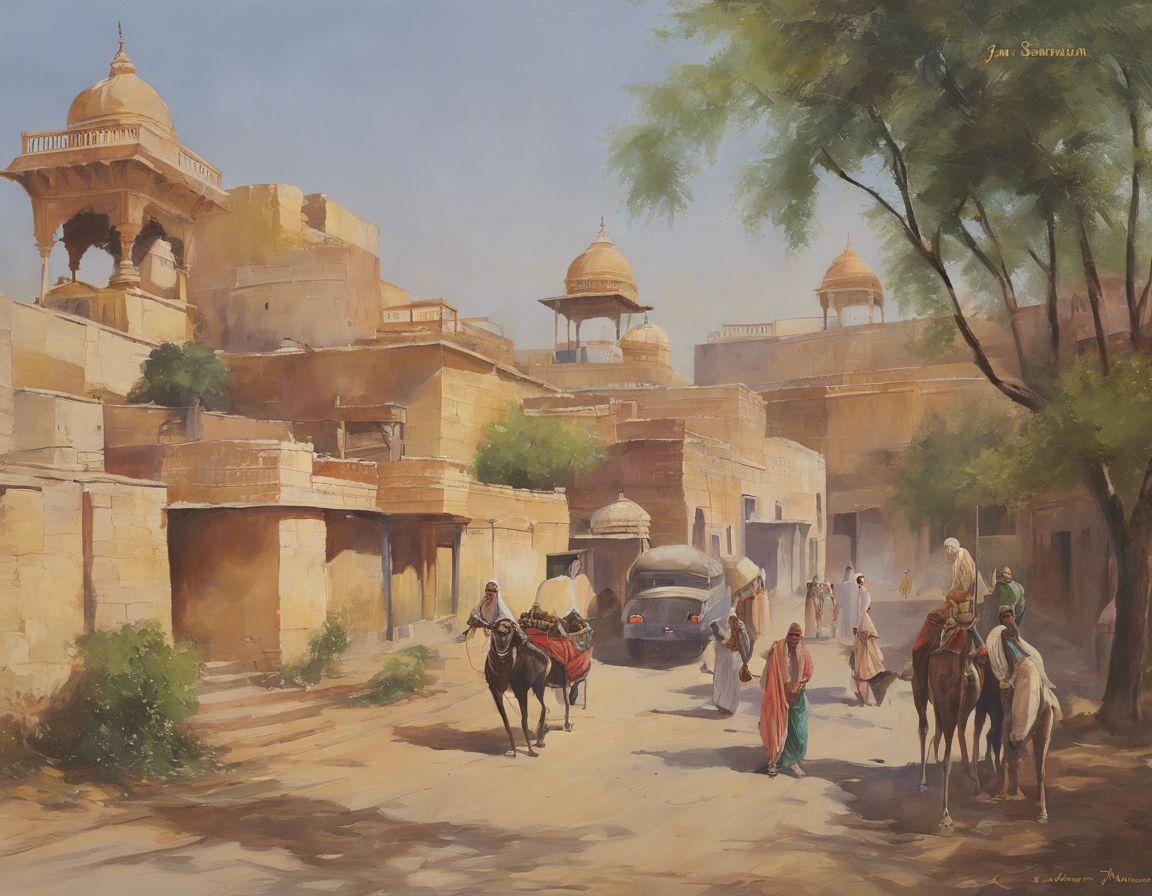Introduction
When it comes to exploring the cultural richness of India, Rajasthan often stands out as a shining gem. With its vibrant traditions, fascinating history, and colorful heritage, Rajasthan offers a unique experience that is a blend of royalty, art, and culture. One such cultural spectacle that captivates locals and tourists alike is the Jan Samman ceremony. This traditional event showcases the essence of Rajasthan’s cultural ethos and serves as a testimony to the state’s rich heritage.
Understanding Jan Samman
Jan Samman, which translates to “People’s Respect” in English, is a ceremony that embodies the spirit of community, respect, and honor in Rajasthani society. It is a traditional practice where individuals are recognized and honored for their contributions to the community, whether through social service, philanthropy, art, craft, or any other form of meritorious work.
Significance of Jan Samman
The Jan Samman ceremony holds a special place in the hearts of Rajasthani people as it not only acknowledges the efforts of individuals but also celebrates their achievements in a public forum. This event is a platform to showcase the rich diversity of talents and the spirit of service that thrives in Rajasthan. It fosters a sense of community pride and encourages others to emulate the good deeds recognized during the ceremony.
The Rituals and Traditions
The Jan Samman ceremony is marked by a series of rituals and traditions that symbolize respect and honor. The event typically begins with an invocation to the deities, seeking their blessings for the proceedings. This is followed by the presentation of awards and certificates to the recipients, accompanied by traditional music and dance performances that add to the festive atmosphere.
The Dress Code
One of the unique aspects of the Jan Samman ceremony is the traditional attire worn by the participants. Men are usually dressed in colorful turbans, kurta-pajamas, and waistcoats, while women adorn themselves in vibrant sarees or lehengas, embellished with traditional jewelry. The dress code adds a touch of elegance and splendor to the event, reflecting the opulence of Rajasthan’s cultural heritage.
Celebrating Diversity through Art and Craft
Artisans and craftsmen play a pivotal role in the Jan Samman ceremony, showcasing their masterful creations that are a testament to Rajasthan’s artistic legacy. From handcrafted textiles and intricate embroidery to vibrant paintings and exquisite jewelry, the event is a treasure trove of artistic expressions that highlight the skill and creativity of Rajasthani craftsmen.
Promoting Social Responsibility
In addition to honoring individuals for their achievements, the Jan Samman ceremony also promotes social responsibility and community welfare. By recognizing and rewarding those who have made a positive impact on society, the event inspires others to contribute towards the betterment of their communities. It serves as a platform to showcase the power of collective action and the importance of giving back to society.
Preserving Cultural Heritage
At its core, the Jan Samman ceremony is a celebration of Rajasthan’s cultural heritage and a reminder of the values that have been passed down through generations. By honoring individuals who embody these values, the event helps in preserving and promoting Rajasthan’s rich cultural legacy. It serves as a bridge between the past and the present, connecting communities through shared traditions and collective pride.
Conclusion
The Jan Samman ceremony in Rajasthan is more than just a cultural event – it is a reflection of the values that define Rajasthani society. By honoring individuals for their contributions and achievements, this ceremony celebrates the spirit of community, respect, and pride that resonates throughout the state. It serves as a beacon of inspiration for future generations, reminding them of the importance of upholding tradition, fostering community bonds, and making a positive impact on society.
Frequently Asked Questions (FAQs)
- What is the origin of the Jan Samman ceremony in Rajasthan?
-
The Jan Samman ceremony has its roots in ancient Rajasthani traditions that emphasize community values and social recognition.
-
Who organizes the Jan Samman ceremony in Rajasthan?
-
The Jan Samman ceremony is typically organized by local community leaders, cultural organizations, and government authorities.
-
How are individuals selected for recognition during the Jan Samman ceremony?
-
Individuals are usually nominated by their peers, community members, or local authorities based on their contributions to society.
-
What types of achievements are honored during the Jan Samman ceremony?
-
The Jan Samman ceremony recognizes a wide range of achievements, including social service, philanthropy, art, craft, entrepreneurship, and cultural preservation.
-
Is the Jan Samman ceremony open to the public?
-
Yes, the Jan Samman ceremony is usually open to the public, allowing people to witness the cultural extravaganza and celebrate the achievements of the honorees.
-
Can tourists attend the Jan Samman ceremony in Rajasthan?
-
Tourists are welcome to attend the Jan Samman ceremony in Rajasthan and experience the cultural heritage and traditions of the state.
-
Are there any specific rituals or customs observed during the Jan Samman ceremony?
-
Yes, the Jan Samman ceremony includes traditional rituals such as invocation to deities, music and dance performances, award presentations, and feasting.
-
How does the Jan Samman ceremony contribute to community development in Rajasthan?
-
The Jan Samman ceremony promotes community pride, social responsibility, and cultural preservation, fostering a sense of unity and cooperation among residents.
-
What role do artisans and craftsmen play in the Jan Samman ceremony?
-
Artisans and craftsmen contribute to the Jan Samman ceremony by showcasing their traditional skills and creations, adding to the cultural richness of the event.
-
How can one learn more about the Jan Samman ceremony and its significance in Rajasthan?
- To learn more about the Jan Samman ceremony and its cultural significance in Rajasthan, individuals can attend the event, interact with local organizers, or read about it in cultural publications and websites.
